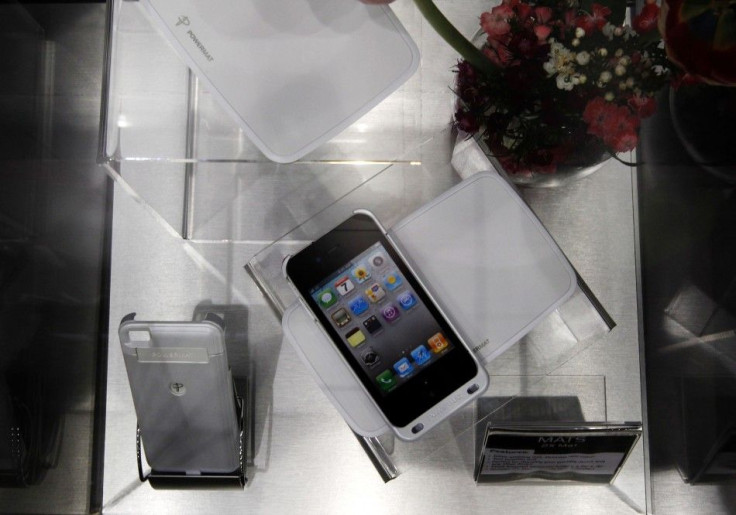Apple iPhone 5: Separating Fact from Fiction (Updated)

Theories abound as to what Apple is packing into its next generation smartphone and more importantly, when will it come out.
Some of these theories make sense, but some are completely off the wall.
Couple that with the viral-nature of the Internet, and a complete overload of Apple related coverage globally, it's hard to get a proper grounding on what consumers of what's fact and what's fiction.
If you get a kick musing over every speculative tidbit that arises about what's next, this article isn't for you.
But if you want to get the most accurate information outside of Cupertino, IBT has wallowed though the disinformation to bring you the most accurate glimpse of what we can reasonably expect in the latest and greatest iPhone 5.
iOS 5
It's a bet, but a pretty safe bet.
The iOS -- or the operating system that powers the iPhone -- was upgraded and polished in time for the iPhone 4 to hit the market.
Just Monday Apple announced a developer conference where it said it will focus on, among other things, the iOS, lending credence to the fact Apple has something up it's sleeve for the new software.
But just what will be included?
Craig Berger of FBR capital said in a note to clients on February 22 that a shipment delay would give Apple more time to enhance its next-generation instant communications on the phone, though no more elaboration was given.
Moreover, the new operating system is expected to incorporate new cloud-based features, things that represent a significant step forward for the operating system, according to Jefferies analysts Peter Misek.
In line with this theory, Apple appears to building what could be the largest data center in the world in Maiden, North Carolina.
The half a million square feet center, expected to go live this spring, will give Apple massive computing to accomplish five key things, according to Sanford Bernstein analyst Toni Sacconaghi.
1: A larger advertising platform, for serving up iAds
2: A digital locker in the cloud to synchronize content between users' Apple devices
3: a music streaming service on a subscription basis;
4: an aggressively priced video subscription service
5: and a service that would support a voice interface on Apple devices, taking user requests in spoken natural language and returning answers, similar to Google's free voice search.
Charge it to my iPhone
Near Field Communication allows devices to communicate to other devices using short waves. The reason this technology has caught fire has been its use in mobile credit card payments.
It already has inroads in Japan and other Asian countries. Jupiter Research has projected that NFC Mobile Payments will exceed $30bn by 2012 (September 2009).
NFC technology would allow iPhone users to swipe their phones in front of a reader, and make quick credit card payments.
The NYT interviewed one person familiar with the new feature on March 22 who said the phone's credit card information would be tied to information currently used on iTunes, making it simple for customers to set up the mobile payments.
This echo's the hunch Ticonderoga Securities analyst Brian White expressed to clients on the 22nd of February:
We believe the adoption of NFC will make the smartphone an increasingly invaluable asset for consumers and we believe Apple is best positioned to take advantage of this trend in the coming years, though he didn't elaborate.
What's Inside
When Apple wins, rest assured there will be a number of other winners as well. Not only the software developers creating the apps, or the accessory makers with their docks and cases, but the companies that supply the parts are also big winners.
Who is expected to win?
The new phone is expected to have the A5 processor, the same chip rolled out into its new iPad 2. If that's the case, then Samsung is set to win big. The South-Korean giant may stand to make additional revenue supplying memory modules also, though this is still in the air.
Broadcom has connectivity chips and some GPS content in the iPhone, while Qualcomm has the CDMA-based baseband chip in the iPhone.
And for connectivity, 4G is the way.
In addition to the later OS, we believe Apple wants its next phone to be LTE capable and have a chipset compatible with both AT&T and Verizon, Jefferies' Peter Misek wrote on March 30.
On April 2nd rumors began to fly after Sony CEO hinted that he was supplying Apple with an 8megapixel camera. Howard Stringer wasn't clear to what product that part would go, but most industry watchers expect the iPhone 5 will receive it.
Some analysts have refuted the interpretation of Stringers comments, saying Omnivision would be the primary provider, but regardless of who is providing, the consensus is the iPhone 5 will most likely have a 8MP camera.
When is it coming?
Following the typical pattern of Apple, we would have expected the iPhone 5 to come in the summer, but there has been plenty of talk of delay -- arising mainly from issues with suppliers.
If it were to be unveiled in summer originally, then Apple indeed delayed the roll-out, shutting the door to any speculation as it announced that the focus of this summer's Worldwide Developers conference would be the iOS and Mac OS -- not hardware.
And there is apparent consensus that iPhone 5 may not be launched in June as was expected generally.
Misek wrote that Apple is taking longer than expected to incorporate new cloud-based features into iOS, things that represent a significant step forward for the operating system, according to Jefferies & Co.'s Peter Misek.
As a result, there will be an iPhone 5 introduction in September/October, Misek told clients.
© Copyright IBTimes 2024. All rights reserved.





















